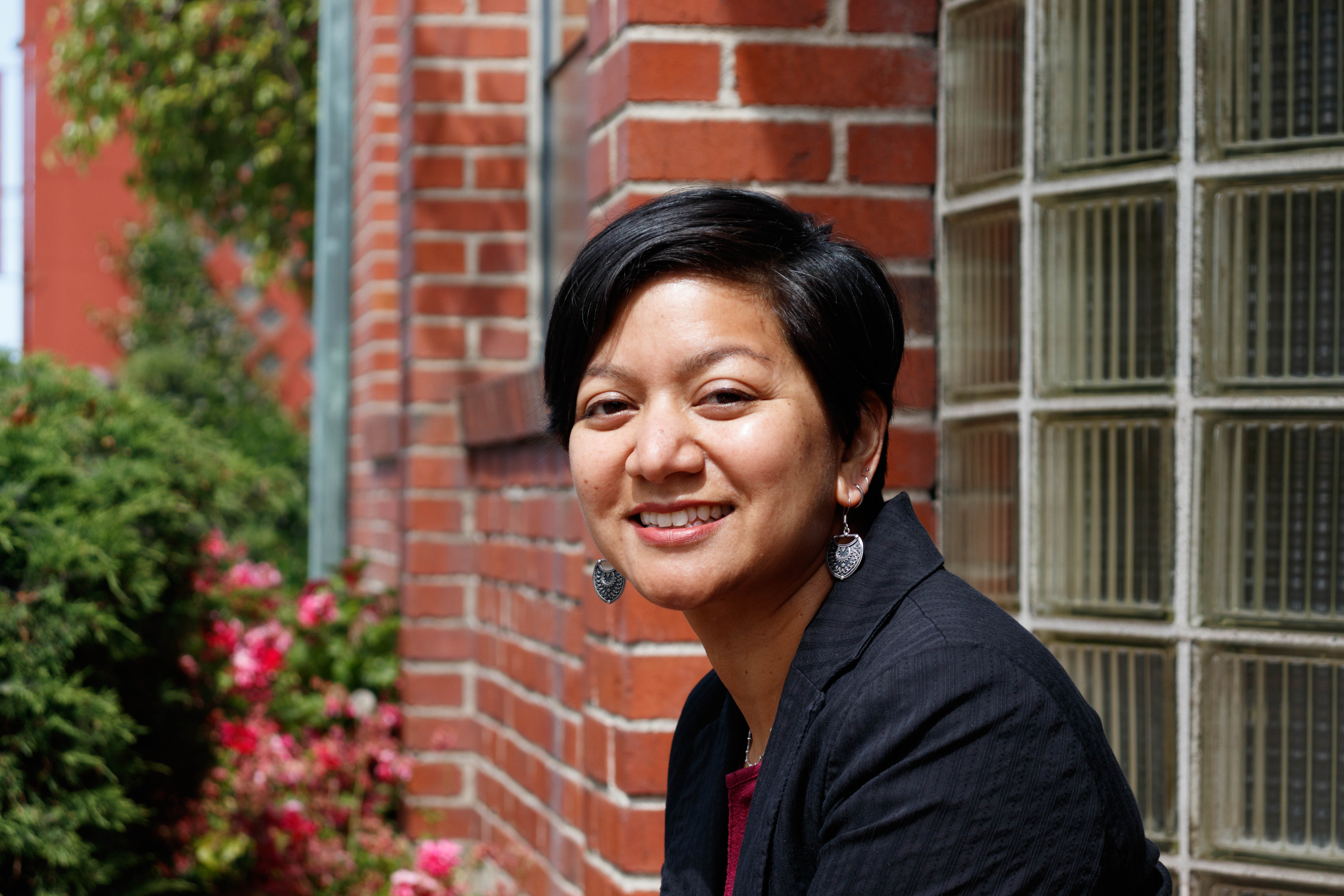Sharmila G. Lash

Voice Instrument: Alto
Bio:
Sharmila G. Lash is a performer, educator, soloist, and ensemble singer in both classical and jazz circles, and many in between. She has been a member of the LA Master Chorale since 2006. Teaching steadily since 2004, she incorporates her vast professional experience to help guide students to find their own voice.
Sharmila has shared the stage with the LA Philharmonic, Gustavo Dudamel, Esa-Pekka Salonen, Michael Tilson Thomas, Left Coast Chamber Ensemble, Kronos Quartet, Carmen Lundy, Don Shelton, and many others, including some of the top jazz musicians in both Northern and Southern California. She has performed at Walt Disney Concert Hall, Hollywood Bowl, Santa Barbara Bowl, Mondavi Center, Zellerbach Hall, and more and has been a featured performer at the Jazz Education Network Conference, DiMiero Jazz Festival, American Choral Directors Association Conference, and Festival Napa Valley, to name a few.
As a session musician, Sharmila has sung on a number of film soundtracks for 20th Century Fox, Columbia Pictures, Lionsgate, Paramount Pictures, Walt Disney Studios Motion Pictures, and Warner Bros. Pictures. She is a proud member of AGMA, SAG-AFTRA, and ASCAP.
Sharmila’s debut solo jazz album If Music Be the Food of Love, featuring guitarist Larry Koonse and bassist Kevin Axt, showcases her agility with language and her affinity for exploring songs that stray from the usual jazz repertoire, like the title track by Baroque composer Henry Purcell, a song by the alternative rock band The Cure, and a Bengali folk song.
sharmilaguhalash.com
Bio:
Sharmila G. Lash is a performer, educator, soloist, and ensemble singer in both classical and jazz circles, and many in between. She has been a member of the LA Master Chorale since 2006. Teaching steadily since 2004, she incorporates her vast professional experience to help guide students to find their own voice.
Sharmila has shared the stage with the LA Philharmonic, Gustavo Dudamel, Esa-Pekka Salonen, Michael Tilson Thomas, Left Coast Chamber Ensemble, Kronos Quartet, Carmen Lundy, Don Shelton, and many others, including some of the top jazz musicians in both Northern and Southern California. She has performed at Walt Disney Concert Hall, Hollywood Bowl, Santa Barbara Bowl, Mondavi Center, Zellerbach Hall, and more and has been a featured performer at the Jazz Education Network Conference, DiMiero Jazz Festival, American Choral Directors Association Conference, and Festival Napa Valley, to name a few.
As a session musician, Sharmila has sung on a number of film soundtracks for 20th Century Fox, Columbia Pictures, Lionsgate, Paramount Pictures, Walt Disney Studios Motion Pictures, and Warner Bros. Pictures. She is a proud member of AGMA, SAG-AFTRA, and ASCAP.
Sharmila’s debut solo jazz album If Music Be the Food of Love, featuring guitarist Larry Koonse and bassist Kevin Axt, showcases her agility with language and her affinity for exploring songs that stray from the usual jazz repertoire, like the title track by Baroque composer Henry Purcell, a song by the alternative rock band The Cure, and a Bengali folk song.
sharmilaguhalash.com


